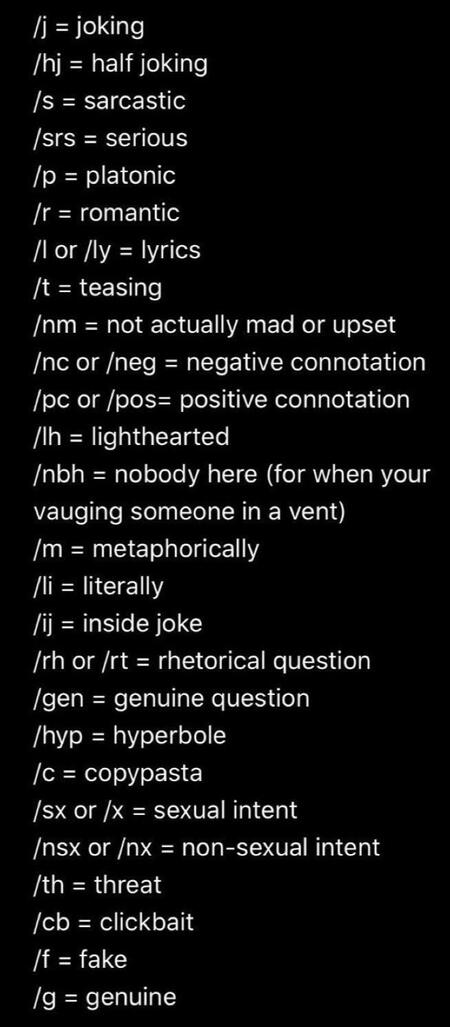Information about ableism and how to help
Hi, my name is Ace and I've created this carrd to help spread awareness on ableism. I've witnessed a lot of ableism on social media (twitter in particular) and as someone with two physical disabilities & a speech impairment, I've experienced ableism first hand. I hope this carrd helps to educate you and I hope that it'll be 100% accurate but if not, feel free to dm me on Twitter (I'll link it below) and I'll ensure to correct any mistakes if there are some.
Ableism is the discrimination of and social prejudice against people with disabilities based on the belief that they are inferior.
Ableism characterises people as being defined by their disabilities and being inferior to the non-disabled.
Ableism can affect anyone who society stereotypes as not being part of the mainstream.
Those who are deaf or hard of hearing
The visually impaired
Those with cognitive anomalies
Those with speech or motor impairments
Those with diabetes, depression, asthma, arthritis, ADHD, epilepsy, AIDS etc.
Lack of compliance with disability laws
Segregating students with disabilities into separate schools
The use of restraint or seclusion as means of controlling students with disabilities
Failing to incorporate accessibility into building design plans
Building without braille on signs, elevator buttons etc.
Building inaccessible websites
The assumption that those with disabilities need or want to be 'fixed'
Using disability as a punchline or mocking those with disabilities
Refusing to provide reasonable accommodations
Choosing an inaccessible venue for a meeting or event, therefore excluding some participants
Using someone else’s mobility device as a hand or foot rest
Framing disability as either tragic or inspirational in news stories, movies, and other popular forms of media
Casting a non-disabled actor to play a disabled character in a play, movie, TV show, or commercial
Making a movie that doesn’t have audio description or closed captioning
Using the accessible bathroom stall when you are able to use the non-accessible stall without pain or risk of injury
Wearing scented products in a scent-free environment
Talking to a person with a disability like they are a child, talking about them instead of directly to them, or speaking for them
Asking invasive questions about the medical history or personal life of someone with a disability
Assuming people have to have a visible disability to actually be disabled
Questioning if someone is ‘actually’ disabled, or ‘how much’ they are disabled
Asking, “How did you become disabled?”
Micro-aggressions are everyday verbal or behavioral expressions that communicate a negative slight or insult in relation to someone’s gender identity, race, sex, disability, etc.
In the case of ableism:
“That’s so lame.”
“You are so retarded.”
“That guy is crazy.”
“You’re acting so bi-polar today.”
“Are you off your meds?”
“It’s like the blind leading the blind.”
“My ideas fell on deaf ears.”
“She’s such a psycho.”
“I’m super OCD about how I clean my apartment.”
“Can I pray for you?”
“I don’t even think of you as disabled.”
Believe people when they disclose a disability
Similarly, don’t accuse people of ‘faking’ their disability
Listen to people when they request an accommodation
Don’t assume you know what someone needs
Never touch a person with a disability or their mobility equipment without consent
Keep invasive questions to yourself
Don’t speak on behalf of someone with a disability unless they explicitly ask you to
Talk about disability with children and young people
Incorporate accessibility into your event planning
A lot of the 'common' phrases you or others may say, actually have ableist undertones & are offensive to those in the disabled community.
The photos below has a list of ableist language and the meanings/history behind the words. I was unable to link the document here but if you want to read the document rather than photos, google 'Avoiding ableist language' and it should be the first PDF that comes up.
Please remove these words from your vocabulary if you use any of them.
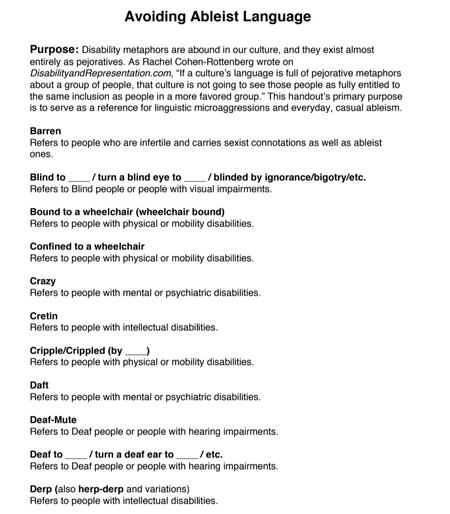
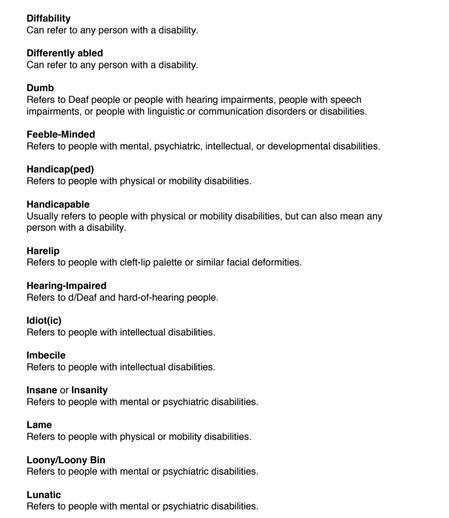
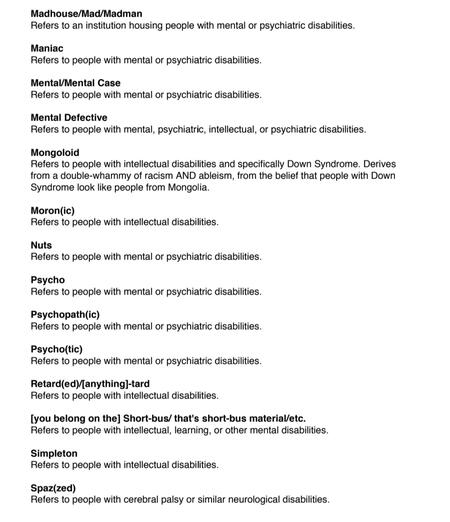
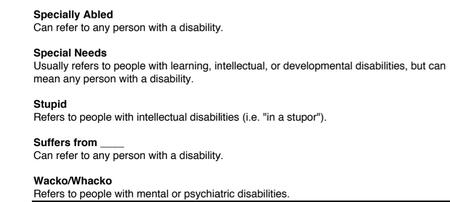
Alternative words you can use are pictured below:
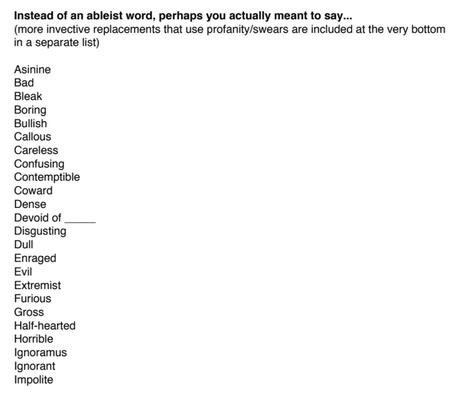
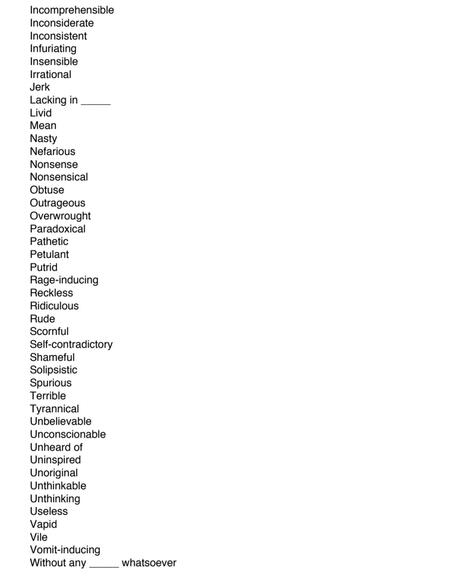
How to describe those with disabilities:

Heres a thread from twitter that discusses some common ableism:
Here are some articles that you can read to educate yourself further, they may include information that I've forgotten.
